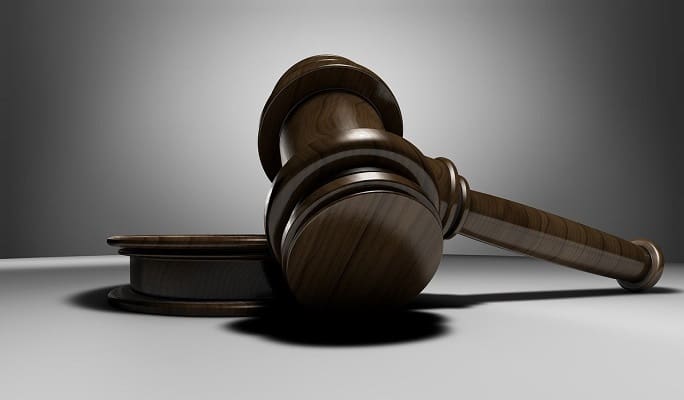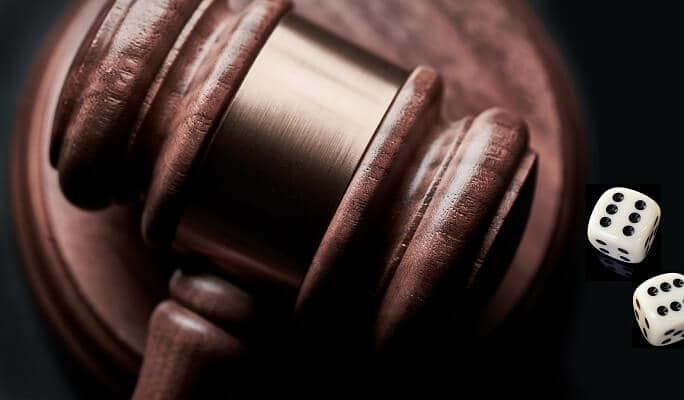
Winnings dispute – Sportingbet versus player
Dispute of maximum payable amount
South African betting punter, Mr. D. Ward, opened a betting account with SA licensed online sportsbook, Sportingbet, in March 2014. Mr. Ward, a regular Sportingbet customer, placed several bets with Sportingbet over the life of his account. On 31st October 2014, luck favoured Mr. Ward and he finally hit it lucky with a dream win. Mr. Ward correctly picked eight winning horses across eight different races on two different tracks. Both racing events took place on the same day. But what led to this winnings dispute?
The bet that was potentially life changing
The winning stake of R100 consisted of two smaller bets of R50 each. One R50 bet was for all eight horses to win their races, the other for these horses to achieve top places. Potential winnings on this betting slip, was calculated to be R4,841,728.28 or nearly five million Rand. Mr. Ward must have been over the moon to learn that he had won such a sizable sum of money. His excitement was short lived as he was soon to find out that he would only be paid R1,000,000 in prize money. This being the cause of the winnings dispute and mr. Ward decided to pursue legal action.
The winnings dispute case as argued
Having hired a lawyer, the case was referred to the South African High Court, Western Cape Division, Cape Town. The basis for the case being that the player was due the balance of the “total possible payment” as indicated on the betting slip. The opposing argument was that due winnings of R1,000,000 had been paid in accordance with Sportingbet terms and conditions. Such conditions that the player had agreed to upon registering his betting account with Sportingbet.
Case progression and the finer details
There was no dispute that the win had occurred fairly. Mr. Ward did not contest having accepted the Sportingbet terms and conditions as part of his betting account registration. In fact, he’d admitted to not having read these. This being an important point often overlooked by players wanting to place their first bet. In addition, the betting slip displaying the total possible payment, also had a clear indication that winning amounts may be limited.
The winnings dispute should have been handled by the Provincial Licensing Authority
Sportingbet attempted to exclude the jurisdiction of the Court to hear this matter. In accordance with Section 78(1) of the Western Cape Gambling and Racing Act, Act 4 of 1996 (the Act). This essentially excludes the Court from hearing an alleged player winnings dispute where the licensee refused to make payment. Sportingbet further contended that in the event of an unsatisfactory dispute result, the matter must be referred to the provincial licensing authority. There is actually no agreement that excludes the Court’s jurisdiction in such matters. This argument was therefore dismissed from the case.
South Africans have a right to a fair public hearing
South African gambling regulations include guidelines for dispute resolution. If a dispute cannot be resolved to the satisfaction of the player, the licensee must inform the player. It also has a responsibility to refer the matter to the gambling board within 48 hours. The player too was able to raise a dispute with the gambling board but was under no obligation to do so. In this instance, Sporting bet did not refer the winnings dispute to the gambling board. Furthermore, Section 34 of the Constitution states that everyone has the right to a fair public hearing. That or, if appropriate, an independent tribunal. The purpose of which, is to decide any dispute that can be resolved by the application of the law.
The player should have been aware of the maximum payment possible per the terms and conditions
As it regards the total possible payment as indicated on the betting slip, an amount of R4, 841,728.28. The player should have known that this winning amount was in fact not possible, under Sportingbet terms and conditions. It was suggested that the amount was a product of a computer-generated mathematical calculation. This was however dismissed by the player’s lawyer as an untenable basis for interpretation of the Sportingbet agreement. Since registering his betting account, the player placed at least 530 bets with Sportingbet. As such he should have been sufficiently familiar with standard Sportingbet terms and conditions, specifically as it relates to limits. Attention is also drawn to exactly this fact each time before a bet is actually placed.
Final judgement
The judge ruling the case, observed that there is no difference in standard terms and conditions and those applicable to each individual betting transaction. Further, that there was nothing specifically indicating that the player was explicitly entitled to the total possible payment. The maximum possible payment was therefore always R1,000,000 as indicated in the Sportingbet terms and conditions, accepted by the player. The player’s claim of his entitlement to the maximum possible payment, was as such artificial. As a result, and the final ruling for the case, the player’s claim was dismissed with costs.
What have we learnt from this winnings dispute case?
Nothing happens overnight
The winning event occurred on 31st October 2014 and the final ruling for the case was passed, over three years later, on 20th November 2017. Legal action takes time and so, if you should decide to go this route, be prepared to have plenty of patience.
Even an undesired outcome has a cost
Since the case was dismissed as an artificial claim, the player did not get the results he’d hoped for in the end. He was also expected to pay the costs associated with the trial, meaning he had ended up with even less than the maximum payment of R1,000,000.
Always read the fine print
A common phrase most of us are familiar with. In this instance however, the print, or in other words, the standard terms and conditions, were explicitly clear. The player was expected to have read and understood these with his acceptance of the same when registering his account. Furthermore, terms and conditions that do not infringe gambling law, human or other constitutional rights, are legally binding and upheld.



